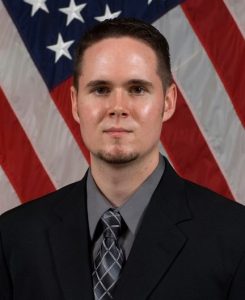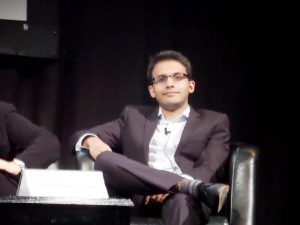IEEE PES Young Professionals is an international community of enthusiastic, dynamic, and innovative members and volunteers. A spotlight on selected PES YP members is provided here to provide insight into this great community. These members provide unique insight into their education, career goals and progression, and personal lives.
Anthony please tell us about yourself
I am currently an Assistant Professor of Electrical and Computer Engineering at The College of New Jersey as well as director of the NSF-funded Smart Electric Power System (SEPS) Laboratory. I teach a number of courses on power system analysis, power electronics, electronics, circuits and systems, as well as differential equations. My research areas include field-programmable analog array (FPAA) technology, artificial neural networks, measurement-based load modeling, demand response, and state estimation in distribution systems. Much of my work examines applications to power system planning and operation. I completed both my undergraduate and graduate work at Drexel University, working on my doctorate as a research assistant within the Center for Electric Power Engineering (CEPE) under advisors Dr. Chika Nwankpa, Ph.D. and Dr. Karen Miu, Ph.D. I am a member of the IEEE Power and Energy Society as well as IEEE IEEE Young Professionals Committee. My hobbies include running as well as playing piano and guitar. Please refer to my website: www.anthonydeese.com for further information.
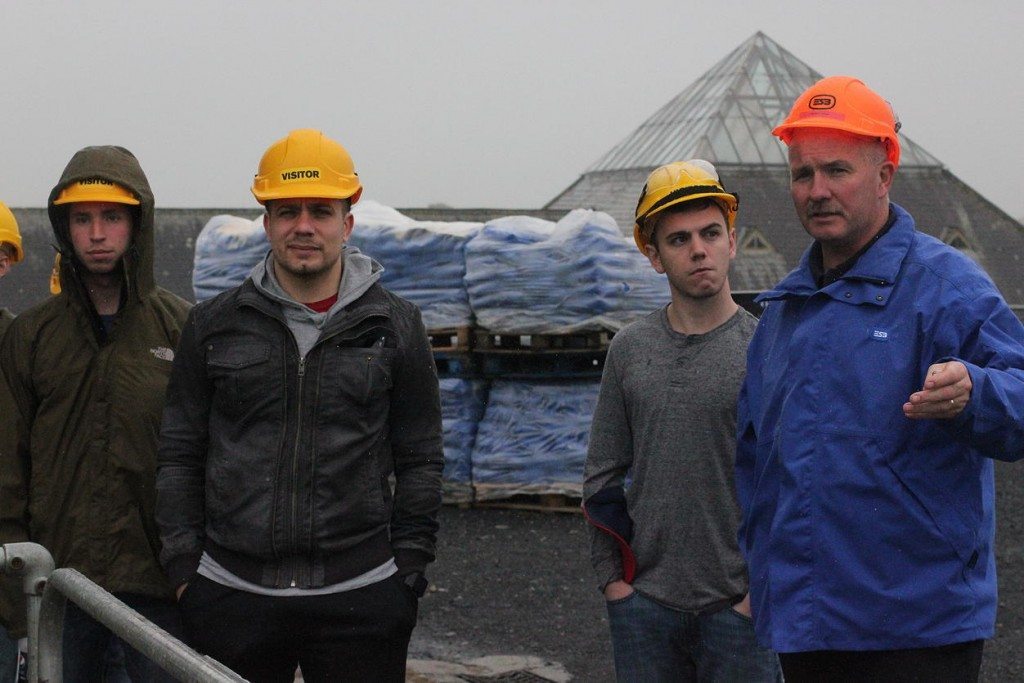
Dr. Deese with students during a hydroelectric power plant visit
What professional achievements are you most proud of?
I am very happy that I have had the opportunity to establish a power engineering laboratory at The College of New Jersey. Not many undergraduate institutions have a facility like SEPS. It has been a great asset in both teaching and research. I look forward to further expanding the capability of the laboratory in coming years.
What were your early career goals (first 10 years in industry)? Which have you accomplished? How did you plan/execute these goals?
My early career goals included acquiring a tenure-track faculty position at a highly-regarded institution of higher learning as well as starting my own laboratory. I have been able to achieve these goals through hard work and the assistance of many colleagues from Drexel University, The College of New Jersey, and the IEEE. I cannot overstate the importance of IEEE and PES involvement; the resources it provides are invaluable to young electrical engineers.
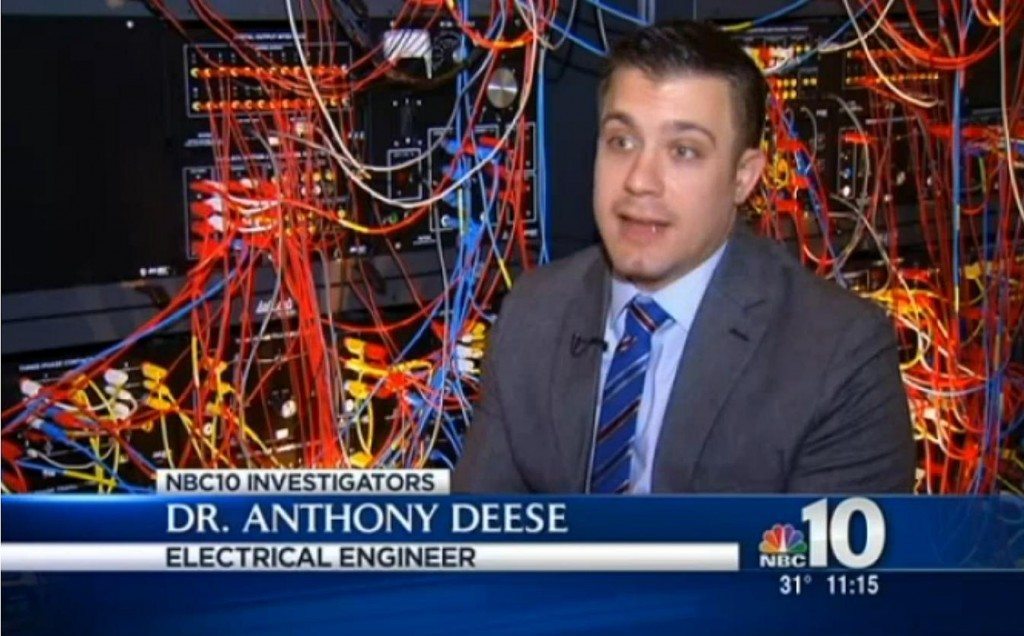
What are you career goals moving forward?
One of my primary career goals moving forward is the acquisition of additional research funds that 1) allow more undergraduate students to participate in research and 2) provide students and faculty at TCNJ with more robust power engineering research and educational facilities. I am also interested in learning more about the utilization of artificial neural networks and machine learning in power system planning and operation. I hope to include these topics in both my future teaching and research.
How are you involved in PES?
I serve on the IEEE PES Young Professionals Committee. Additionally, I have attended the IEEE PES General Meeting every year for the past 5 – 7 years. It is a great opportunity to present work, learn about emerging topics in the field of power engineering, and connect with others in the power community.
Do you have any advice for Young Professionals getting involved in PES?
First, I would advise YP members to learn about and take advantages of all the opportunities the IEEE provides. There many sources of scholarship, travel funding, and job placement assistance that go under-used. Subscribe to IEEE Spectrum as well as IEEE Power and Energy Magazine, and make time to read them monthly. The IEEE uses these publications to communicate with its membership and inform them of new and exciting opportunities. Second, I would advise YP members to always maintain a five-year career plan, formal or informal. It is important for young engineers to ask themselves important questions regarding: 1) technical areas to focus on, 2) interest in graduate education, 3) desire to work in academia vs. industry, as well as 4) expectations for income and lifestyle. I have always maintained an informal five-year plan. And, although it’s constantly changing, this vision for the future encourages me to devote some time to career development in spite of more pressing / immediate tasks.
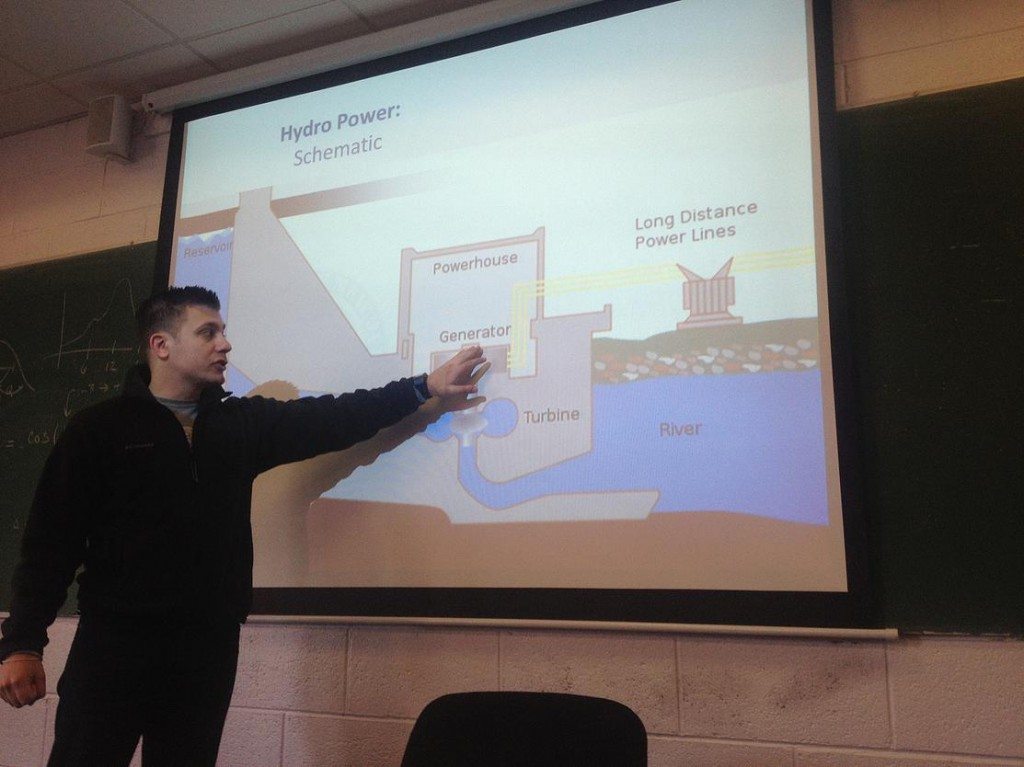
You have been in the power industry for approximately ten years, what was the biggest challenge you faced in your career? How did you deal with this challenge?
The biggest challenge I have faced in my career is learning how to turn negatives into positives. Almost everyone faces setbacks in their career. However, it is important to realize that these setbacks are invaluable learning experiences essential to self-improvement and long-term career success.
In your experiences, how important has/is continuing education to career advancement and personal development?
No one succeeds in their chosen profession without devoting time to continued education and personal development. This education may take place in the university classroom, research laboratory, or corporate / industrial environment. However, it is essential that professionals look ahead and obtain the skills that will be needed in the future, especially in a fast-changing technical field like engineering.
What advice do you have for newly graduated power engineers?
I strongly believe that you (aka. the recent graduate) have chosen the right field to enter at the right time. I suggest that you use the early years of your career to gain as much experience and as many skills as possible. They will pay high dividends in the future.
Profile was provided by the Young Professionals of Power & Energy Society (PES)
Tags:Power and EnergySmart Power Systems




